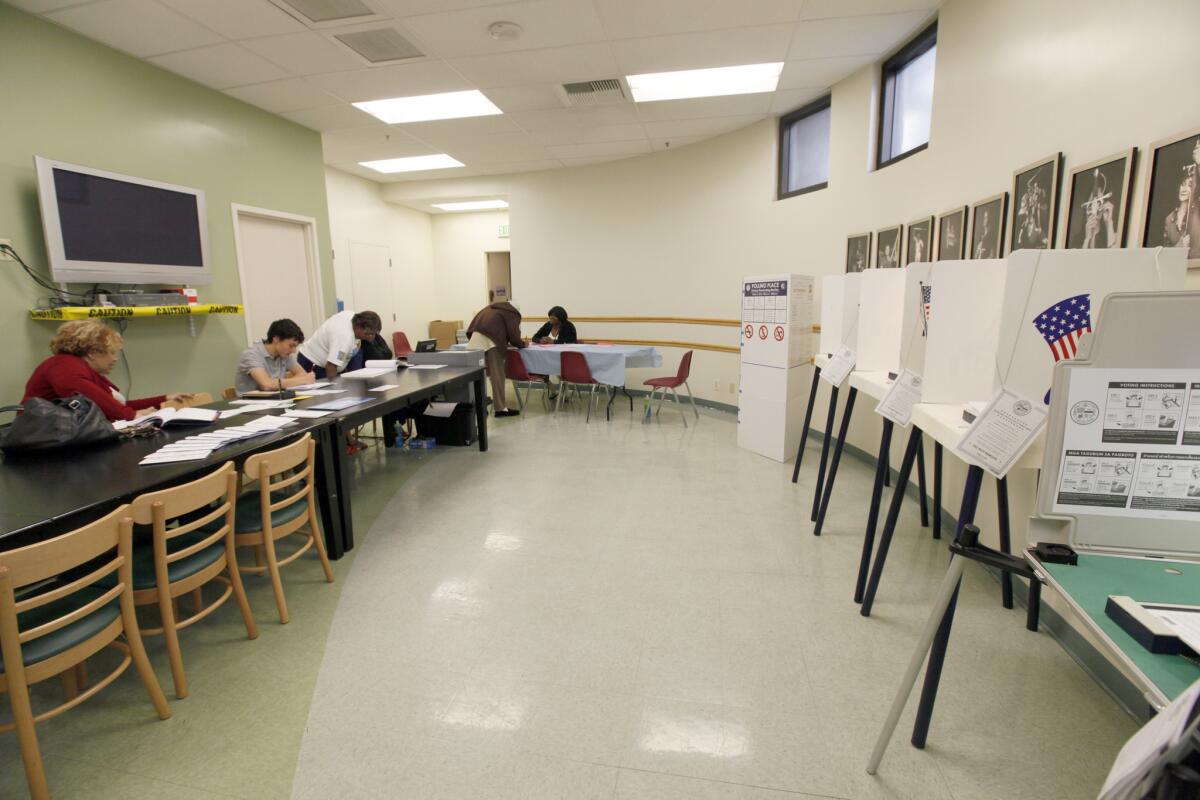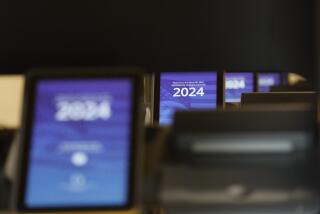Where did the voters go?

- Share via
On Monday, millions of Kenyan voters braved the possibility of violence to wait in mile-long lines beginning at dawn to cast ballots in their national election. Turnout, officials said, was tremendous.
The next day in Los Angeles, 16% of registered voters turned out for the first round of city elections.
Why? There was no blizzard keeping people at home, nor were there death threats from fundamentalist militias. The city of Los Angeles is in the midst of a deep financial crisis — facing further service cuts and potential police layoffs — and voters were being asked to choose a new mayor, one who is likely to serve for the next eight crucial years. There was a tax increase proposal on the ballot as well, something that usually stirs people’s emotions. The school board races were so contentious that they received donations from thousands of miles away; New York Mayor Michael Bloomberg, for instance, gave $1 million to influence them. But Angelenos couldn’t be bothered to vote.
RESULTS: Los Angeles primary election
Of course, city elections never generate the turnout that national elections do. The stakes are lower and there’s a lot less attention paid. But in Los Angeles, participation is particularly low. In Chicago, the average turnout for city elections is 48% of the eligible voting population, according to a 2007 study by a University of Michigan professor. In Philadelphia, it’s 44%. In San Francisco, it’s 41%. But in L.A., the average is just 26%.
It’s an embarrassment. But voters aren’t entirely to blame. Here are some explanations other than chronic apathy and inattentiveness for the dismal attendance:
There was a bit of election fatigue, no doubt, given that the country just finished a big, splashy, exhausting presidential election four months ago. Unlike that race, the candidates in this one were, for the most part, uninspiring. Worse, the leading mayoral candidates were, to one degree or another, indistinguishable. It wasn’t easy to choose between Wendy Greuel and Eric Garcetti, who hold the same positions on most of the issues voters are familiar with. So maybe the voters decided it didn’t matter who won.
PHOTOS: A rogues’ gallery of L.A. mayors
Disenchantment was probably increased by the kind of campaign that was waged — one in which vague answers and evasions and bromides were offered at the dozens of debates, and in which the advertising was primarily negative. Jan Perry’s personal bankruptcies? Eric Garcetti’s not-very-profitable interest in a Beverly Hills drilling rights deal? These were diversions, not serious issues.
Voting, as this page has noted, is an act of optimism, an affirmation that politicians are accountable to the people and that every vote matters. Low turnout, by contrast, gives disproportionate power to those — too often affiliated with one special interest or another — who bother to show up.
Not voting can reflect despair or disinterest or, ironically, contentment. No matter which, it’s clear that too many Los Angeles voters are taking for granted a right that people around the world fight and die for.
More to Read
A cure for the common opinion
Get thought-provoking perspectives with our weekly newsletter.
You may occasionally receive promotional content from the Los Angeles Times.






